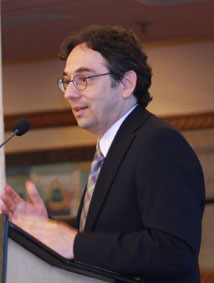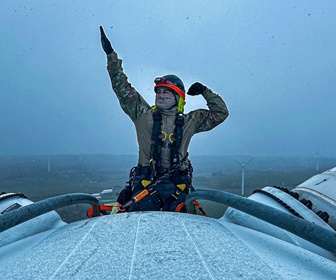 Renewable energies have now become widely accepted as key energy sources, even by most of their previous opponents. However, the main actors and drivers of renewable energy are now under attack. In the recent past, the renewable energy community has been challenged by a trend towards ‘competitive’ auctions for renewable power generation. The term in itself is misleading as it implies that auctions automatically lead to more competition, and that other instruments like feed-in tariffs lack competition. Both are untrue.
Renewable energies have now become widely accepted as key energy sources, even by most of their previous opponents. However, the main actors and drivers of renewable energy are now under attack. In the recent past, the renewable energy community has been challenged by a trend towards ‘competitive’ auctions for renewable power generation. The term in itself is misleading as it implies that auctions automatically lead to more competition, and that other instruments like feed-in tariffs lack competition. Both are untrue.
By Stefan Gsänger, Secretary General, WWEA, Germany
The European Commission has been strongly pushing for this development by forcing all EU member states to replace feed-in legislation by auctions. A prominent case has been Germany, where the parliament adopted the introduction of auctions from next year on – against the advice of all renewable energy proponents and in spite of the fact that the renewable energy market in this country was flourishing thanks to thousands of community based investors who see no future for themselves under the new legislation.
Experience with auctions in various countries has shown that auctions are discriminating against smaller investors, including local communities, and that they are giving privileges to very large companies and international corporations.
Will the international trend therefore kill decentralised, community based, renewable energy investment? Without doubt, such investment, in particular in larger, grid-connected renewable energy generation, will become much more difficult, maybe impossible. However, there are a number of reasons for optimism over the longer term:
1. Auctions are actually a dead-end policy: they do not create an absolutely free market but often lead to a small number of actors with correspondingly higher prices. And, even more important, auctions do not tackle the challenge they are supposed to solve: they do not contribute to the technical or economic integration of renewable energy, be it volatile or not, into the energy market.
2. Renewable energy will only grow quickly with support from local people, as we know well from the wind sector. And people will only support renewables if they have direct benefits, be they financial profit, jobs, more democratic control, etc. Without this support, renewables cannot be implemented at the necessary pace.
3. Decentralised approaches are more efficient than centralised, monopolistic approaches, economically but also physically. Renewable energy is offered by nature in abundance, but well and evenly distributed. Hence it is simply more efficient to use these energies close to the place where they are harvested – it doesn’t make much sense to collect the energy, concentrate it and redistribute it.
4. Especially in less developed countries decentralised approaches have a natural competitive advantage. There are still hundreds of millions of people living in non-electrified areas, and they require per se decentralised solutions like off-grid hybrid systems. Also maximising the share of those local communities in the generated value will make it much easier to finance such projects, as the communities will be able to pay for the installations.
5. Energy is not only the power sector. Cross-sector applications are getting increasingly important; power, heating/cooling and transportation need to be connected. Hence new technological approaches will play an important role, including power-to-gas, power-to-transportation, power-to-heat/cool, new flexible storage options, etc. Flexible and innovative approaches and actors will have a natural competitive advantage in developing and deploying such new technologies and markets.
Many governments have taken decisions which are detrimental for SMEs and for community based investments. However, the decentralised character of renewable energy may force governments to revise their decisions and, even without this, new technologies will create new opportunities.










